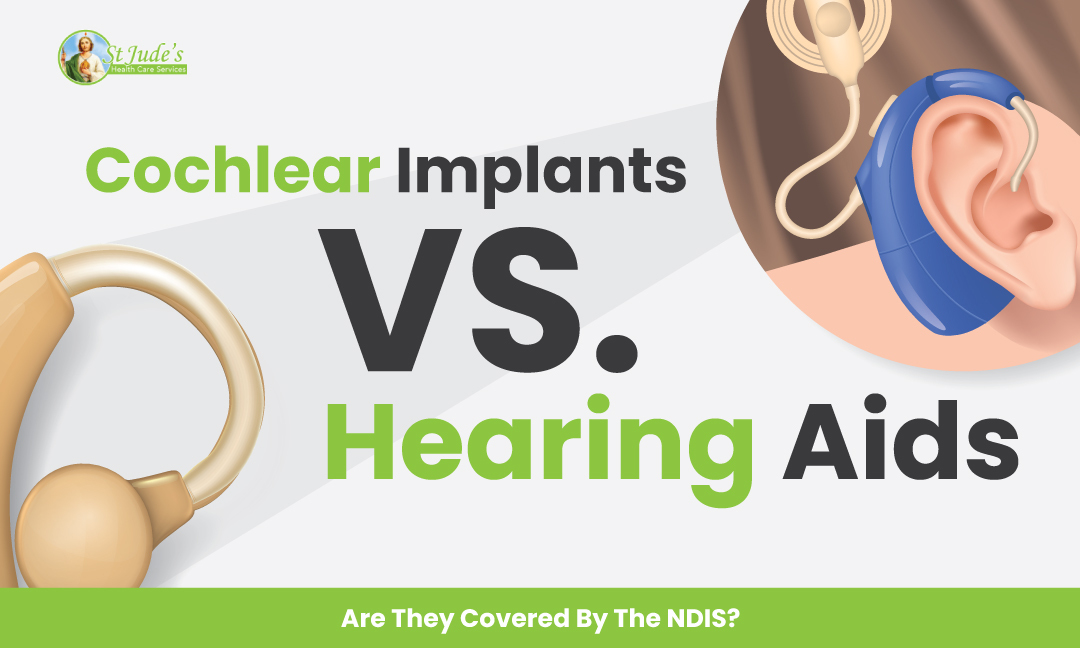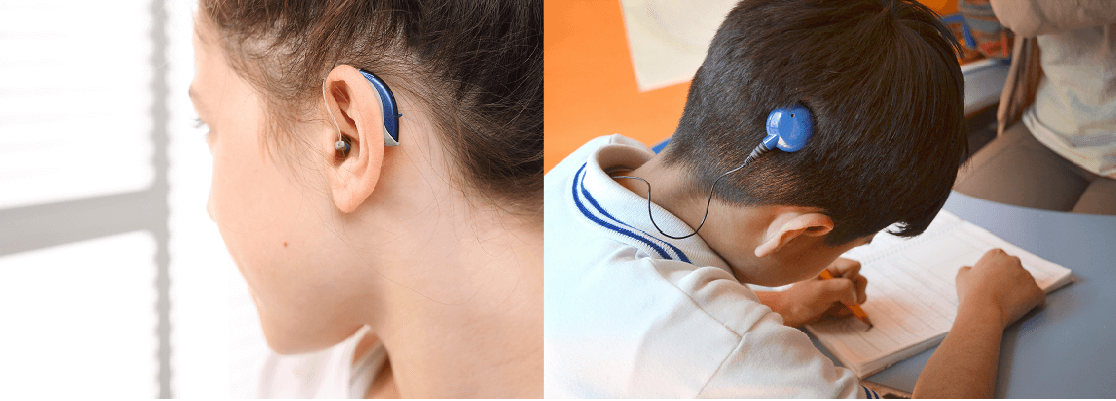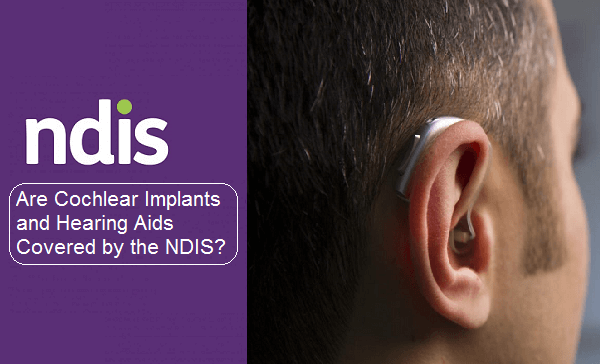Cochlear Implants vs Hearing Aids – Are They Covered By The NDIS?

If you have significant hearing loss, and are starting to look into treatment options, then you will probably be wondering whether you need cochlear implants or hearing aids, and which one may be more suitable for your specific condition. Also, another important thing to consider is whether these hearing supports are covered by the NDIS and if you will be eligible for them.
What Is the Difference Between Cochlear Implants and Hearing Aids?

What Is a Cochlear Implant?
A cochlear implant is a complex device that is surgically fixed behind the ear of someone who is hearing impaired. Cochlear implants bypass the damaged part of the ear and stimulate the auditory nerve directly. They have two components, the external part includes a microphone, speech processor, and a transmitter, and the internal part consists of a receiver that is implanted under the skin behind the ear and electrode arrays that are implanted in the inner ear.
Cochlear implants work by using the processor to pick up sounds from outside the ear. These are then changed into electrical signals which are transferred through the transmitter to the receiver, and finally to the electrodes. The signals are sent to the brain from there, where they register as sound.
What Is a Hearing Aid?
A hearing aid is a small, removable, battery-operated device that sits behind the ear of someone who is hearing impaired. They make sounds louder or sharper, and reduce the impact of any background noise. Hearing aids have three parts, a microphone, an amplifier, and a speaker. The microphone receives the sound waves and turns them into electrical signals, then the amplifier magnifies the sounds, and the speaker sends them into the ear.
How Do They Differ?
The obvious difference between cochlear implants and hearing aids is that cochlear implants are permanently attached, whereas you can remove a hearing aid whenever you like. However, you can remove the outer part of the implant, and sometimes you can get a waterproof replacement for swimming and other activities.
Also, hearing aids amplify sounds, unlike cochlear implants, which stimulate the auditory nerve directly and the brain interprets this as sound. This means that what you hear with the implant might sound a bit artificial, and you can even hear strange sounds caused by magnetic fields. With a cochlear implant, you will also need the support of speech pathologists and audiologists to learn how to understand the sounds. Having hearing aids can take a bit to get used to, but it doesn’t take as long.
How Do You Know Which Is Right for You?
Cochlear implants are most suited for people with profound hearing loss – this means the person has a total lack of hearing – whereas hearing aids are suitable for anything between mild and severe hearing loss. Hearing aids are the first solution recommended for people with hearing impairments, and then if they turn out to not be suitable, a cochlear implant may be considered.
To find out what solution is best for you, it is best to talk to a professional audiologist, as they can determine which one suits your specific type of hearing loss. If you are experiencing hearing loss, an audiologist can run some tests, diagnose you, and find a treatment that suits your hearing needs, lifestyle, and budget.
Are Cochlear Implants and Hearing Aids Covered by the NDIS?

The NDIS covers hearing supports for people who are not eligible for the Hearing Services Program (HSP). The HSP covers children and adults who are under 26, and so the NDIS funds hearing supports for those over 26, and any additional supports that are necessary for those under 26. These NDIS supports can include both cochlear implants and hearing aids, as long as they are determined reasonable and necessary. You must meet their requirements, and this assistive technology has to be included in your NDIS plan. If you need cochlear implants but would like to have a waterproof option as well, you need to include water-based sports in your NDIS goals so that you can get funding for Aqua+ waterproof implants.
It is worth noting that the NDIS does not fund the surgery to have cochlear implants implanted. This is because they do not cover visits to audiologists or other medical practitioners. Visits to your audiologist and the surgery to get your cochlear implant will have to be funded by health insurance or Medicare.
|
|


